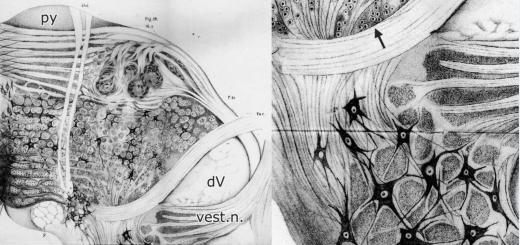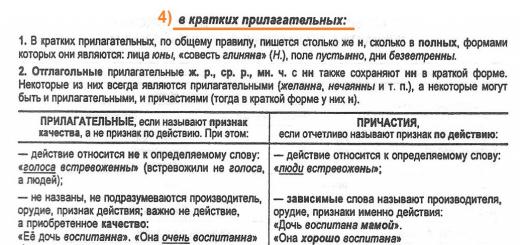Slide presentation
Slide text: Gambling addiction Completed:

Slide text: Korneeva Diana

Slide text: Myakotnikova Olga

Slide text: What is gambling addiction? Compared to disadvantaged children, computer gamers look quite innocent: they don’t disappear on the street, they behave quietly and calmly, and they very rarely disappear from the sight of their parents. Then what is the problem? And the fact is that games gradually crowd out all other activities: first the child stops going for walks, then his live communication with friends and peers is reduced to nothing - only chats, online games and call-backs are left for completing game levels together. There is nothing to say about studying. I go into the tenth grade during a lesson - the teacher explains the material in almost complete silence. All you can hear is a strange rustling and isolated exclamations, clearly not related to the topic: every second person has portable game consoles under their desks. What kind of physics is this!

Slide text: Computer addiction => Gaming addiction The term “computer addiction” defines a person’s pathological addiction to working or spending time on the computer. American scientists first started talking about computer addiction in the early 80s. Nowadays, the term “computer addiction” is still not recognized by many scientists working on the problems of mental disorders, but the very phenomenon of the formation of a pathological connection between a person and a computer has become obvious and is becoming increasingly widespread.

Slide text: In addition to computer addiction, there are some related types of addictions: Internet addiction and gambling addiction, which, one way or another, are associated with spending a long time at the computer. Characteristic features of addictions of various types are: withdrawal syndrome, the desire to acquire an object of addiction, behavior aimed at acquiring an object of addiction, a decrease in critical attitude towards the negative aspects of addiction, loss of interest in relation to the social side of life, appearance, and satisfaction of other needs.

Slide text: Stages of development of addiction There are 4 stages of development of psychological dependence on computer games: 1. Stage of mild addiction. At this stage, a person enjoys playing a computer game, which is accompanied by positive emotions.

Slide text: 2. Stage of passion. Playing computer games at this stage takes on a systematic nature.

Slide text: 3. Stage of dependence. This stage is characterized not only by a shift in the need for play to the lower level of the pyramid of needs, but also by other, no less serious changes in the value-semantic sphere of the individual.
Slide No. 10

Slide text: 4. Attachment stage. This stage is characterized by the extinction of a person’s gaming activity, a shift in the psychological content of the individual as a whole towards the norm. The relationship between a person and a computer at this stage can be compared to a loosely but firmly sewn button. Those. a person “keeps a distance” from the computer, but cannot completely break away from the psychological attachment to computer games. This is the longest of all stages - it can last a lifetime, depending on the rate at which the attachment fades.
Slide No. 11

Slide text: All on the computer! If primary and secondary schoolchildren sit their pants down at the expense of active actions, then with teenagers and young adults everything is much more complicated. They lose motivation for any other activity (including communication with the opposite sex, going to college and work), except for computer games. This is where parents begin to sound the alarm: instead of preparing to enter a university, the child is fighting orcs around the clock. Even parting with your beloved cannot bring you back to reality: your son may simply not notice that his girlfriend has not called or come for two weeks. One eighteen-year-old boy once told me: while playing, time flies so unnoticed that you can sit down for half an hour and get up the next day. Quite similar to what casino visitors say, isn’t it?
Slide No. 12

Slide text: Return to life - Volodenka, take a walk in the yard. “What a nice, sunny day,” my mother suggested. “Tomorrow we’ll go fishing, I promised you a long time ago,” said dad’s voice. Volodya sat at the computer and was silent; there was no time to answer. An army of aliens has invaded Earth. Flying saucers circled in the air. Volodya was given a new powerful weapon! - Why are you, grandson, stuck to the computer? You haven’t gone outside for three days. Turn off your box, let's go to the market. “Help me,” the grandmother’s voice was heard. “Bah, leave me alone,” the boy asked. - My land is dying. Aliens have broken into the city.
Slide No. 13

Slide text: “I’ll now turn off the electricity and remove all your enemies at once,” the grandmother got angry. "What to do? If grandma turns off the electricity, I won't have time to finish the game. Help, you’re the smartest,” Volodya begged the computer. It seemed to the boy that the computer understood him. The picture of the street came closer. An alien appeared from around the corner. He knocked the weapon out of the boy’s hands with his horns and released a poisonous stream at him. Volodya seemed to have fallen through a wall. Volodya barely remembered further events. He ran, shot, saved someone.
Slide No. 14

Slide text: A boy woke up near an ancient fortress. Volodya was terribly tired and lay down on the grass near the stone wall. “It’s strange, there are no smells here,” Volodya thought. The boy remembered how sweet flowers smell. - You can't lie down. This is not in the rules of the game,” said the metallic voice of the computer. “But I want to lie on the grass,” Volodya objected. “Although it’s no fun lying on your grass.” It's artificial. There are no beetles, ants, or various flowers. There's nothing even to look at. “There’s no need to look at the grass,” a metallic voice objected. – Create your army, fight...
Slide No. 15

Slide text: – I don’t want to fight anymore. If only you knew how nice it is to splash around on a river in the summer. “I don’t understand,” the computer interrupted the boy, “water spoils everything.” - It's great to look at the fire. The flame plays and sparkles,” the boy recalled. – I don’t understand, where is the flame? – the metallic voice became agitated. “I’m just dreaming,” Volodya explained. – I dream of going fishing. “You have to fight...” the computer’s voice trembled and asked: “Tell me about fishing.” “I haven’t been fishing for a hundred years.” Everyone played with you. - This cannot be. “You were gone a hundred years ago, and I’m only two years old,” the computer objected, but the boy only waved his hand in response. The voice fell silent. Pictures began to appear before Volodya’s eyes, one more interesting than the other: tombs with treasures, underwater kingdoms, space stations. The boy closed his eyes and began to remember the smell of his mother’s perfume.
Slide No. 16

Slide text: Suddenly everything started spinning, and Volodya saw above him the frightened faces of his mother, father and an unfamiliar woman in a white robe. “Thank you, doctor, for bringing him to his senses,” my mother said alarmedly. “Don’t worry, the fainting has passed,” the doctor answered. - Let him sit at home. Volodya jumped up in fear: “No, I don’t want to sit at home, dad promised that we’ll go fishing tomorrow.” “But you’re too weak,” the doctor tried to object. “You can’t break a man’s word,” the father winked at his son.
Slide No. 17

Slide text: Physical signs of gambling addiction Physical signs of gambling addiction are represented by disorders of the eyes (visual impairment, display syndrome, dry eye syndrome), musculoskeletal system (spinal curvature, posture disorders), digestive system (eating disorders, chronic constipation , haemorrhoids). Physical signs of computer addiction are less specific and are usually caused by prolonged use of the computer. Some of these signs may also occur in people who do not suffer from computer addiction at all, but who are forced to spend a long time at the computer
Slide No. 18

Slide text: Treatment A prerequisite for successful treatment of computer addiction is awareness of the problem and the desire to be treated on the part of the person suffering from computer addiction. At the same time, computer addiction is most often recognized by friends, relatives, and acquaintances around the subject, but not by the subject himself. A person suffering from addiction must be taken to a doctor, because... Friends and relatives cannot cope with this problem, but at the same time, during treatment, close people should provide support to the patient.




Title="Computer addiction => Gaming addiction The term “computer addiction” defines a person’s pathological addiction to working or spending time on the computer. Computer addiction was first discussed in the early 80s in America">!}













1 of 18
Presentation on the topic: Gaming addiction
Slide no. 1

Slide description:
Slide no. 2

Slide description:
Slide no. 3

Slide description:
Slide no. 4

Slide description:
What is gambling addiction? Compared to disadvantaged children, computer gamers look quite innocent: they don’t disappear on the street, they behave quietly and calmly, and they very rarely disappear from the sight of their parents. Then what is the problem? And the fact is that games gradually crowd out all other activities: first the child stops going for walks, then his live communication with friends and peers is reduced to nothing - only chats, online games and call-backs are left for completing game levels together. There is nothing to say about studying. I go into the tenth grade during a lesson - the teacher explains the material in almost complete silence. All you can hear is a strange rustling and isolated exclamations, clearly not related to the topic: every second person has portable game consoles under their desks. What kind of physics is this!
Slide no. 5

Slide description:
Computer addiction => Gaming addiction The term “computer addiction” defines a person’s pathological addiction to working or spending time on the computer. American scientists first started talking about computer addiction in the early 80s. Nowadays, the term “computer addiction” is still not recognized by many scientists working on the problems of mental disorders, but the very phenomenon of the formation of a pathological connection between a person and a computer has become obvious and is becoming increasingly widespread.
Slide no. 6

Slide description:
In addition to computer addiction, there are some related types of addictions: Internet addiction and gambling addiction, which, one way or another, are associated with spending a long time at the computer. Characteristic features of addictions of various types are: withdrawal syndrome, the desire to acquire an object of addiction, behavior aimed at acquiring an object of addiction, a decrease in critical attitude towards the negative aspects of addiction, loss of interest in relation to the social side of life, appearance, and satisfaction of other needs.
Slide no. 7

Slide description:
Slide no. 8

Slide description:
Slide no. 9

Slide description:
Slide no. 10

Slide description:
4. Attachment stage. This stage is characterized by the fading of a person’s gaming activity, a shift in the psychological content of the individual as a whole towards the norm. The relationship between a person and a computer at this stage can be compared to a loosely but firmly sewn button. Those. a person “keeps a distance” from the computer, but cannot completely break away from the psychological attachment to computer games. This is the longest of all stages - it can last a lifetime, depending on the rate at which the attachment fades.
Slide no. 11

Slide description:
All for the computer! If primary and secondary schoolchildren sit their pants down at the expense of active actions, then with teenagers and young adults everything is much more complicated. They lose motivation for any other activity (including communication with the opposite sex, going to college and work), except for computer games. This is where parents begin to sound the alarm: instead of preparing to enter a university, the child is fighting orcs around the clock. Even parting with your beloved cannot bring you back to reality: your son may simply not notice that his girlfriend has not called or come for two weeks. One eighteen-year-old boy once told me: while playing, time flies so unnoticed that you can sit down for half an hour and get up the next day. Quite similar to what casino visitors say, isn’t it?
Slide no. 12

Slide description:
Return to life - Volodenka, take a walk in the yard. “What a nice, sunny day,” my mother suggested. “Tomorrow we’ll go fishing, I promised you a long time ago,” came my dad’s voice. Volodya sat at the computer and was silent, there was no time to answer. An army of aliens has invaded Earth. Flying saucers circled in the air. Volodya was given a new powerful weapon! “Why are you, grandson, stuck to the computer?” You haven’t gone outside for three days. Turn off your box, let's go to the market. “Will you help me,” the grandmother’s voice was heard. “Bah, leave me alone,” the boy asked. - My land is dying. Aliens broke into the city. Slide No. 14 
Slide description:
The boy woke up near an ancient fortress. Volodya was terribly tired and lay down on the grass near the stone wall. “It’s strange, there are no smells here,” Volodya thought. The boy remembered how sweet flowers smell. “You can’t lie down.” This is not in the rules of the game,” came the metallic voice of the computer. “But I want to lie on the grass,” Volodya objected. “Although it’s no fun lying on your grass.” It's artificial. There are no beetles, ants, or various flowers. There’s nothing even to look at.” “There’s no need to look at the grass,” the metallic voice objected. – Create your army, fight...
Slide no. 15

Slide description:
- I don't want to fight anymore. If you only knew how nice it is to splash around in the river in the summer.” “I don’t understand,” the computer interrupted the boy, “water spoils everything.” “It’s great to look at the fire.” The flame plays and sparkles,” the boy remembered. “I don’t understand, where is the flame?” – the metallic voice became agitated. “I’m just dreaming,” Volodya explained. “I dream of going fishing.” “You have to fight...,” the computer’s voice trembled and asked: “Tell me about fishing.” “I haven’t been fishing for a hundred years.” Everyone was playing with you.” “This can’t be true.” “You were gone a hundred years ago, and I’m only two years old,” the computer objected, but the boy only waved his hand in response. The voice fell silent. Pictures began to appear before Volodya’s eyes, one more interesting than the other: tombs with treasures, underwater kingdoms, space stations. The boy closed his eyes and began to remember the smell of his mother’s perfume.
Slide no. 16

Slide description:
Suddenly everything began to spin, and Volodya saw above him the frightened faces of his mother, father and an unfamiliar woman in a white coat. “Thank you, doctor, for bringing him to his senses,” his mother said anxiously. “Don’t worry, the fainting has passed,” the doctor answered. “Let him sit at home.” Volodya jumped up in fear: “No, I don’t want to sit at home, dad promised that we’ll go fishing tomorrow.” “But you’re too weak,” the doctor tried to object. “You can’t break a man’s word,” dad winked at his son.
Slide no. 17

Slide description:
Physical signs of gambling addiction Physical signs of gambling addiction are represented by disorders of the eyes (deterioration of vision, display syndrome, dry eye syndrome), the musculoskeletal system (spinal curvature, posture disorders), and the digestive system (eating disorders, chronic constipation, hemorrhoids) . Physical signs of computer addiction are less specific and are usually caused by prolonged use of the computer. Some of these signs may also occur in people who do not suffer from computer addiction at all, but who are forced to spend a long time at the computer
Slide no. 18

Slide description:
A prerequisite for successful treatment of computer addiction is awareness of the problem and the desire to be treated on the part of the person suffering from computer addiction. At the same time, computer addiction is most often recognized by the friends, relatives, and acquaintances around the subject, but not by him himself. A person suffering from addiction must be taken to a doctor, because... Friends and relatives cannot cope with this problem, but at the same time, during treatment, close people should provide support to the patient.
Description of the presentation by individual slides:
1 slide
Slide description:
Don't run from reality, because reality is what makes you human. Today, gaming addiction is one of the most common problems in childhood education, which mainly affects children from 8 to 16-18 years old.
2 slide
Slide description:
Many experts agree that humanity owes such terrible diagnoses as depression, burnout syndrome, chronic fatigue, alcohol and drug addiction, and suicidal tendencies to high technology. The task of parents is to form in their child an adequate attitude towards the computer world, to make his life so bright, interesting and rich that no virtual fun can compete with it.
3 slide
Slide description:
Until the age of seven, a child is not able to draw a clear line between fiction and real life. And if at such a tender age the baby “dives” into computer games and TV, they become his reality. But the experience acquired in the first seven years of life largely shapes our life attitudes and values. Most often, it is boys who fall into computer addiction.
4 slide
Slide description:
Causes of computer addiction in children: 1. Lack of communication with peers and people significant to the child. 2. Lack of attention from parents. 3. Lack of self-confidence and strength, shyness, complexes and difficulties in communication. 4. Children’s tendency to quickly “absorb” everything new and interesting. 5. The child’s desire to be “like everyone else” of his peers, to follow their hobbies, to keep up. 6. The child has no interests or hobbies, or any other attachments not related to the computer. 7.The formation of a child’s computer addiction is often associated with the characteristics of upbringing and family relationships.
5 slide
Slide description:
Signs of computer addiction: 1. The child has an obsessive desire to play on the computer (console, tablet, etc.) He will happily prefer the company of an “iron” friend to any, even his most favorite pastime. 2. Friends suddenly disappeared somewhere. If someone comes to visit him, it is to play together on the computer. He himself goes to his friends for the same purpose. 3. An incomprehensible emotional upsurge, which is abruptly replaced by a bad mood. Taking a closer look, you will understand that all this is connected with virtual successes and failures in the game. 4. Night vigils at the computer and refusal to eat, because there is a “very important battle” going on on the Internet. Computer addiction develops much faster than any other traditional addiction: smoking, drugs, alcohol, gambling. The main symptom of computer gaming addiction is a constant obsessive desire to play computer games.
6 slide
Slide description:
The dangers of computer addiction. 1. The computer becomes a powerful stimulus and the main object for communication. 2. At first, the computer can compensate for the child’s lack of communication, but then this communication may become unnecessary at all. 3. While playing or surfing the Internet, the child loses control over time. 4. A child may show aggression if he is deprived of access to computer games. 5. Permissiveness and ease of achieving goals in games can affect the child’s confidence that in real life everything is just as simple and you can “start” the game again.
7 slide
Slide description:
The dangers of computer addiction. 6.Due to a neglectful attitude towards food, vitamin and mineral deficiencies may occur. 7. Many hours of continuous exposure to a monitor can cause blurred vision, poor posture, decreased immunity, headaches, fatigue, and insomnia. 8. Children stop fantasizing, the ability to create visual images decreases, emotional immaturity and irresponsibility are observed. 9.Depression may occur when you are without a computer for a long time. Home and family fade into the background. There may be problems with studying. 10. The child’s social circle decreases and, as a result, the lack of life experience and communication experience. 11. The child’s psyche and worldview may be disrupted. Problems begin with studying at school, attention falls, and any interests outside of games disappear.
8 slide
Slide description:
Results of a psychological study: 1. Young teenagers with a high degree of computer gaming passion have lower levels of mental abilities than their peers. 2. They are more confident and less sociable. 3. During the game, the psyche of a younger teenager forms its own virtual world. 4. The victories of the virtual character are perceived as personal achievements, the child feels like a hero. 5. The game becomes a medium for the formation of personal qualities, an indicator of success. 6. There is a predominance of risk-taking. 7. There are low indicators for such parameters of subjectivity as: the ability to reflect, freedom of choice and responsibility for it, understanding and acceptance of others, self-development. 8. Children are distinguished by an insufficient degree of development of self-control and self-control in the process of activity. 9.Volitional qualities are significantly reduced. 10.Low rates of communication with relatives and literary heroes.
Slide 9
Slide description:
Different types of computer games can have different effects on a child. 1. The most dangerous are considered to be role-playing games with the view “from the eyes” of a computer hero. This type of games is characterized by the greatest strength of “dragging” or “entering” into the game. 2. No less dangerous are games with an outside view of “your” computer hero. This type of games is characterized by less strength in entering the role compared to the previous one. The player sees “himself” from the outside, controlling the actions of the game hero. 3. Strategic games, “leadership” games, are less dangerous, but can really engage a child. This type is so named because the player is given the right to direct the activities of the computer characters subordinate to him. 4. Next come non-role-playing games: arcades, puzzles, speed games, gambling.
10 slide
Slide description:
Subconsciously, the child chooses exactly those games that best reflect his suppressed needs. Strategic – the child lacks structure. At the same time, he has the potential to have leadership qualities; such a person can lead others. A positive “substitute” for computer strategies is chess, construction (by the way, “strategists” are the easiest to get rid of the craving for a computer). Sports - activity is suppressed, perhaps there are some bodily blocks. If a child is chasing a virtual puck or ball (team games), he has a great need to be part of a peer group that is significant to him. Switch his attention to real sports fun. “Shooters”, horrors – unlived aggression or suppressed sexuality. By the way, aggression is one of the emotions necessary for the survival of the species (in psychology there is even such a concept: a normal level of aggression). Another thing is how much there is and in what direction it is directed. Such a child needs to move more, and he also needs tactile contact (hugs, massage) with his parents.
11 slide
Slide description:
Who is more addicted to computer games? 1. Children of those parents who are most often not at home. 2. Children of wealthy parents or workaholics who are constantly busy. 3. Children of those adults who are often comfortable that the child is busy and does not distract them with requests to play. 4. Children of parents who are themselves dependent on the computer and the Internet. Remember that you yourself are an example for your growing baby.
12 slide
Slide description:
How to deal with gambling addiction? You cannot forcibly take away a child’s computer without giving him anything in return. Stereotyped behavior must be changed. Establish and deepen contact with your child. Discuss games with him, weed out those games that contain scenes of violence, encourage aggression in him or serve as a source of excessive drive. Play educational games with him together. Another important aspect is the development of interests in the child that are not related to the computer world. You can awaken a child’s interest in real life only by your own example. Find time for heart-to-heart conversations, read books together, share your experiences, organize joint leisure time with your child, sports games, nature trips, fishing, ski slopes, etc.
Slide 13
Slide description:
Prevention of addiction to computer games. 1. Personal example of parents - if you allow your child to play for some time a day, then you yourself should not spend more time at the computer. 2. A list of joint activities, games, clubs, additional activities, etc. Everything must be planned so that the child does not have a free minute. 3. Use the computer as a reward, for effective education, as encouragement. 4. It is important to clearly control the games the child plays. You should know what kind of game it is and monitor any deviations in the child's behavior after he has played the game. Irritability, agitation, and insomnia may occur. All this indicates that either the playing time has been exceeded, or the game is not suitable for the child. 5.Give preference to educational games and sites. Discuss with your child those games that, in your opinion, would be more useful for him to play. 6. Treatment with the “beauty” of reality: exploring the world, museums, theaters, parks, traveling, communicating with interesting interlocutors. 7. Installation of special network filters and specialized software that allow you to control and limit the child’s communication with the computer.
Slide description:
The task of every child is to become an adult, an independent person who can make constructive decisions, be responsible for his actions, make informed choices and build his life based on healthy spiritual and moral principles. The task of adults is to help him in this difficult task.
WHAT is gambling addiction? It has been established that gambling can cause addiction, somewhat reminiscent of alcohol or even drugs. In childhood, gaming addiction usually develops in relation to computer games. At the same time, such a useful and necessary thing as a computer is fraught with another danger of dependence on it. It has been established that gambling can cause addiction, somewhat reminiscent of alcohol or even drugs. In childhood, gaming addiction usually develops in relation to computer games. At the same time, such a useful and necessary thing as a computer is fraught with another danger of dependence on it. Gaming addiction is an alleged form of psychological addiction, manifested in obsessive passion for video games and computer games. Gaming addiction is an alleged form of psychological addiction, manifested in obsessive passion for video games and computer games. Americans first started talking about computer addiction in the late 80s. last century. In their opinion, its symptoms are: an obsessive desire to check your mailbox on the Internet, constant anticipation of the next time you go online, addiction to work (games, programming or other activities) and an irresistible urge to search for information on the Internet. Due to unlimited access to information, this often creates an illusory sense of omnipotence. A particular danger of becoming addicted to the Internet lies in wait for those for whom computer networks are almost the only means of communicating with the world. Americans first started talking about computer addiction in the late 80s. last century. In their opinion, its symptoms are: an obsessive desire to check your mailbox on the Internet, constant anticipation of the next time you go online, addiction to work (games, programming or other activities) and an irresistible urge to search for information on the Internet. Due to unlimited access to information, this often creates an illusory sense of omnipotence. A particular danger of becoming addicted to the Internet lies in wait for those for whom computer networks are almost the only means of communicating with the world.

STATISTICS STATISTICS Currently, Hong Kong leads the world in the number of gambling addicts, with the USA and Canada in second place. According to various sources, in Russia, from 1 to 2% of the population are gamblers. In St. Petersburg, the number of players ranges from up to people. Currently, Hong Kong leads the world in terms of the number of gambling addicts, with the USA and Canada in second place. According to various sources, in Russia, from 1 to 2% of the population are gamblers. In St. Petersburg, the number of players ranges from up to people. Up to 60% of patients with gambling addiction commit crimes; Up to 60% of patients with gambling addiction commit crimes; From 13 to 40% - suicide attempts; From 13 to 40% - suicide attempts; From 32 to 70% - suicidal thoughts are noted. From 32 to 70% - suicidal thoughts are noted.

REASONS Let's list the main reasons for computer addiction: 1. Lack or lack of communication and warm emotional relationships in the family. 1. Lack or lack of communication and warm emotional relationships in the family. 2. The child’s lack of serious hobbies, interests, hobbies, and attachments not related to the computer. 2. The child’s lack of serious hobbies, interests, hobbies, and attachments not related to the computer. 3. The child’s inability to establish desirable contacts with others, lack of friends. 3. The child’s inability to establish desirable contacts with others, lack of friends. 4. Psychologists designated the next reason as “the presence of severe disability, serious illness.” 4. Psychologists designated the next reason as “the presence of severe disability, serious illness.” And also: Feeling of loneliness. Feeling lonely. Feeling of dissatisfaction.. Feeling of dissatisfaction.. Gambling addiction is a risk for people with any other addictions, for example, addiction to drugs, alcohol. Gambling addiction is a risk for people with any other addictions, for example, addiction to drugs and alcohol. Mental disorders of varying degrees. Mental disorders of varying degrees.

Signs of psychological dependence on a computer. Feeling good or euphoric at the computer; Feeling good or euphoric at the computer; Indifference to other people; Indifference to other people; Constantly increasing amount of time spent playing; Constantly increasing amount of time spent playing; The so-called “withdrawal”, when there is no opportunity to play; The so-called “withdrawal”, when there is no opportunity to play; Spending a lot of money to ensure that games and PC devices are constantly updated; Spending a lot of money to ensure that games and PC devices are constantly updated; Forgetting about household chores, official duties, studies, meetings and agreements while playing on the computer; Forgetting about household chores, official duties, studies, meetings and agreements while playing on the computer; Neglecting your own health, hygiene and sleep in favor of spending more time at the computer; Neglecting your own health, hygiene and sleep in favor of spending more time at the computer; Discussion of computer and gaming topics with all the people around you. Discussion of computer and gaming topics with all the people around you.

The mechanism of addiction: 1. Stage of mild infatuation: a person begins to “feel a taste”, he begins to like computer graphics, sound, imitation of real life or some fantastic plots. The desire for gaming activity takes on purposefulness. 1. Stage of mild infatuation: a person begins to “feel a taste”, he begins to like computer graphics, sound, imitation of real life or some fantastic plots. The desire for gaming activity takes on purposefulness. 2. Stage of passion: playing computer games becomes systematic. A new need appears in the hierarchy of needs. 2. Stage of passion: playing computer games becomes systematic. A new need appears in the hierarchy of needs. 3. Dependency stage: changes in self-esteem and self-awareness. Manifests itself in 2 forms: socialized and individualized. 3. Dependency stage: changes in self-esteem and self-awareness. Manifests itself in 2 forms: socialized and individualized. 4. Attachment stage: extinction of a person’s play activity, a shift in the psychological content of the personality as a whole towards the norm. This is the longest of all stages; it can last a lifetime, depending on the rate at which the attachment fades. 4. Attachment stage: extinction of a person’s play activity, a shift in the psychological content of the personality as a whole towards the norm. This is the longest of all stages; it can last a lifetime, depending on the rate at which the attachment fades.

So, any child and teenager can become addicted to a computer, but the chances are reduced if: there is an atmosphere of friendliness, peace, comfort and trust in the family; there is an atmosphere of friendliness, peace, comfort and trust in the family; the child has varied interests and hobbies; the child has varied interests and hobbies; the child knows how to establish positive relationships with others; the child knows how to establish positive relationships with others; a child knows how to set at least the smallest goals for himself. a child knows how to set at least the smallest goals for himself.

What to do? Try to engage your child in activities that are not related to frequent use of the computer, so that the virtual world does not become a replacement for real life. Remember that there are a lot of interesting activities, in particular sports and tourism, which not only allow you to experience a variety of thrills, but also train the body and normalize the psychological state. Try to engage your child in activities that are not related to frequent use of the computer, so that the virtual world does not become a replacement for real life. Remember that there are a lot of interesting activities, in particular sports and tourism, which not only allow you to experience a variety of thrills, but also train the body and normalize the psychological state. Virtual reality is not life, it is only a reflection of life, it is a parallel, but not the main world. It is important to learn to use computer capabilities as needed, and to combine computer games with real active actions in the real world.












